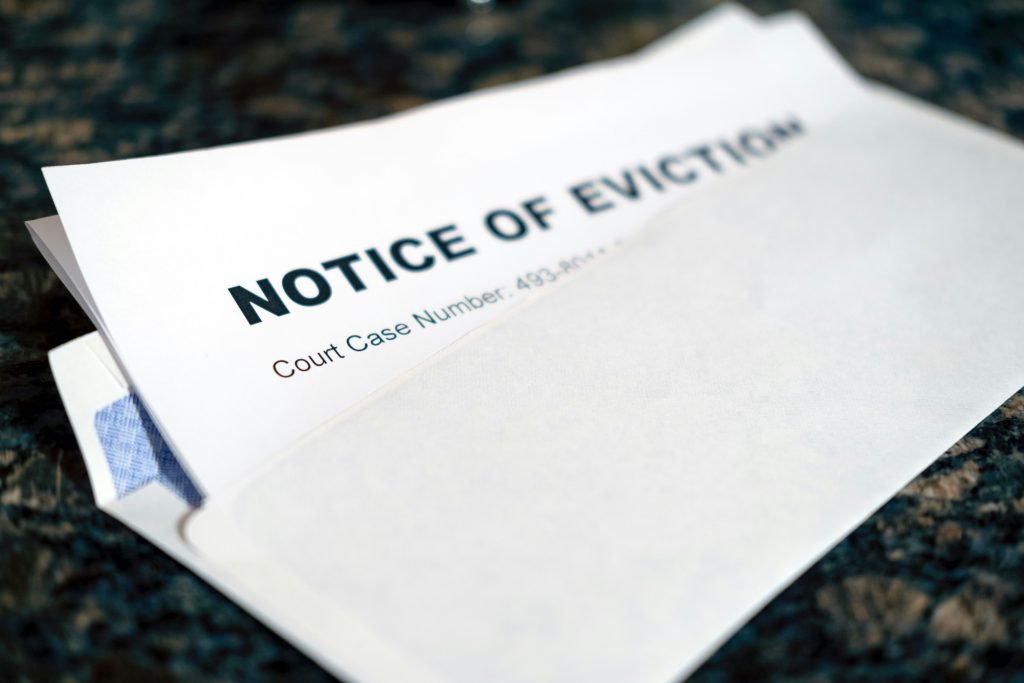
Are you a landlord in Grand Junction wondering how to handle a tenant eviction? In Colorado, landlords have specific legal rights and obligations when it comes to removing a tenant, whether for nonpayment of rent, lease violations, or illegal activity, and the eviction procedures can feel overwhelming. However, understanding the steps involved can help you navigate it with confidence.
A Step-By-Step Guide to Eviction in Colorado
The eviction process in Colorado involves several important steps landlords must follow to regain possession of their house legally. Here’s a breakdown of each stage to help you navigate the process smoothly and avoid any legal issues.
Step 1: Deliver Eviction Notice
To adhere to the Colorado eviction laws, the first step requires the landlord to serve the tenant with a formal written notice. This notice informs the tenant of the lease or rental agreement violation, such as failing to pay rent or breaking lease terms, and gives them a set period to correct the issue or vacate the premises. The type of notice and the time the tenant is given to respond depends on the nature of the violation.
For example:
● If the tenant is late on rent, the Colorado landlord may serve a 3-Day Notice to Quit (for employer-provided housing), a 5-Day Notice to Quit (for exempt rental properties), a 10-Day Notice to Quit for residential lease agreements, or a 30-Day Notice to Quit for CARES Act Properties (any premises with a federally backed mortgage, or tenants that receive a federal housing subsidy).
● For minor lease violations other than late payment of rent, such as damage or breaking specific terms of the lease agreement, the landlord might issue a 3-Day, 5-Day, 10-Day, or 30-Day Notice to Comply or Vacate, depending on the type of residential premises.
● For tenants without a lease or rental agreement, or on a month-to-month lease, the landlord can serve a 21-Day Notice to Vacate, depending on the length of the tenancy.

The notice must be served in a specific manner, either through personal delivery, delivery to someone over 18 years of age at the rental, or by posting the notice on two separate days in a conspicuous location if all other methods fail. The landlord must retain proof of service, as this documentation is critical if the case proceeds to court.
Step 2: File a Lawsuit With the Court
If the tenant refuses to resolve the issue or moves out within the indicated notice period, the landlord’s next step is to file a formal eviction lawsuit with the court. This step is referred to as filing a “Forcible Entry and Detainer” (FED) action. The landlord must file this lawsuit in the county where the rental property is located, and the case will be assigned a court date.
The landlord must serve the tenant with both a summons and a complaint. These legal documents notify the tenant that the landlord is pursuing eviction through the Colorado courts and provide details of the case. The landlord or someone unrelated to the case who is over 18 years of age must serve these papers to the tenant at least 7 days before the eviction hearing. Service can be completed through:
● Personal delivery to the tenant.
● Leaving the documents with someone over 18 years of age at the tenant’s residence or workplace.
● Posting the papers in a conspicuous place on the rental and mailing them to the tenant.
Failure to properly serve these documents could delay the eviction proceeding in Colorado or cause the case to be dismissed. Accurate service is crucial to moving the eviction forward.
Step 3: Attend Court Hearing and Judgment
After the tenant receives the summons and complaint, the court schedules a court hearing date, typically 7 to 14 days later. During this court hearing, both the landlord and the tenant can present their arguments. The tenant may choose to file a written response before the hearing, but this is not mandatory.
If the tenant does not file a written answer or fails to appear at the hearing, the judge may issue a default judgment in favor of the landlord, leading to an immediate eviction order.

If the tenant attends the hearing and disputes the eviction, the court may schedule a second hearing to review the tenant’s defense and determine the next steps. In this second hearing, the judge will also decide if the tenant owes any unpaid rent or damages to the landlord.
Step 4: Wait Until a Writ of Restitution Is Issued
The writ of restitution is the final notice the tenant receives before law enforcement can intervene to evict tenants from the rental unit. This writ is issued at least 48 hours after the court’s judgment in favor of the landlord. It serves as the tenant’s last chance to vacate the rental unit voluntarily and remove their personal belongings.
Once the writ is issued, if the tenant remains in the dwelling beyond the deadline, the landlord can schedule a time with the sheriff’s office to physically remove the tenant. The writ grants law enforcement the authority to carry out the eviction, meaning the sheriff can return to the unit and forcibly remove the tenant if necessary.
Step 5: Regain Possession of the Property
Once the writ of restitution is issued, the landlord must work with the local sheriff’s department to schedule the eviction. The timing of the eviction depends on how quickly the sheriff’s office can execute the writ, which could take anywhere from a few hours to several days.

The eviction process, when carried out by the sheriff, can vary in duration, but it typically involves law enforcement escorting the tenant off the property and overseeing the removal of their belongings. The sheriff ensures that the eviction is conducted lawful and orderly, giving the landlord full legal possession of the rental unit.
Once the lease agreement is terminated the landlord must return the security deposit, unless they have a valid reason to keep it.
Bottom Line
The eviction process in Grand Junction can be complex, but understanding each step can make it smoother for Colorado landlords. From serving notice to regaining possession of the dwelling, staying informed and following legal procedures is key.
While evictions are never easy, ensuring you meet all requirements will help you avoid delays and complications. By being diligent, and seeking legal advice where necessary, you can resolve these uncomfortable situations and get your real estate investment back on track, ready for new tenants and a fresh start.
For expert assistance with any property management issue, turn to Kokopelli Real Estate. As a trusted and professional property management company based in Grand Junction, CO, we’re here to help. Contact us today to learn more!
Disclaimer: Please note that the information provided in his blog is intended for general guidance and should not be considered as a replacement for professional legal advice. It is important to be aware that laws pertaining to property management may change, rendering this information outdated by the time you read it.
